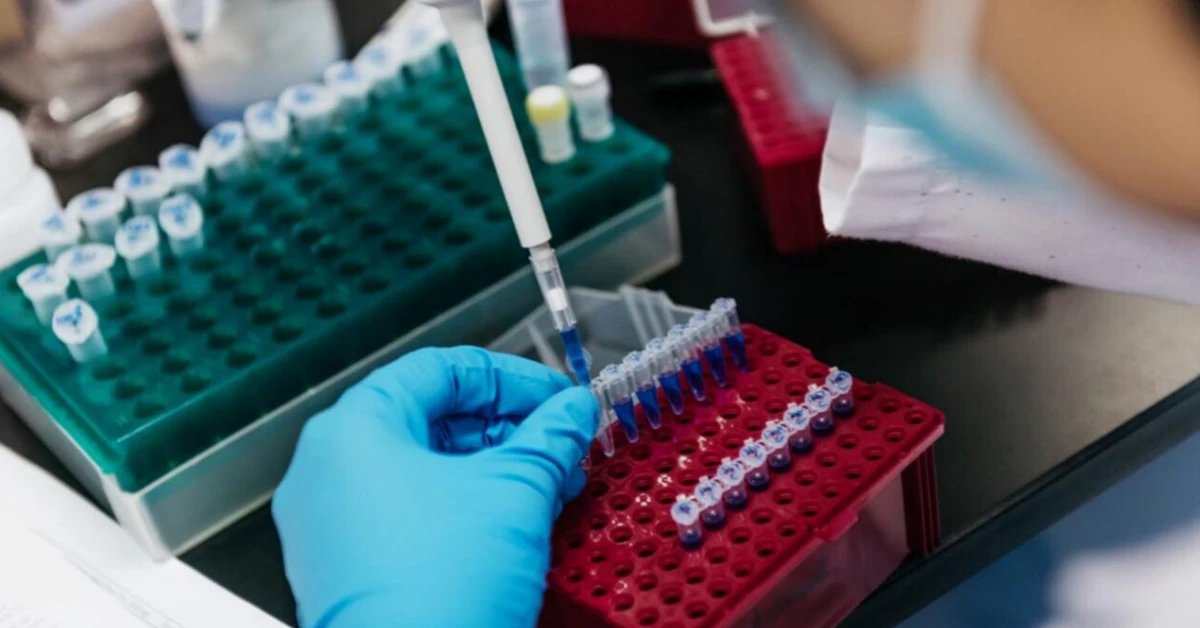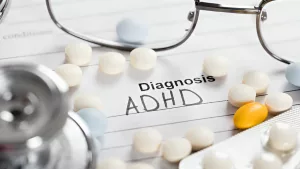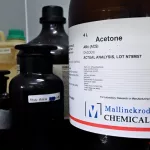Let’s be real for a second: when someone you love—or maybe it’s you yourself—faces the foggy unknown of something like autism, life can feel like you’re walking through a maze. There’s worry, hope, confusion, and a whole lot of “what ifs” swirling around. Sometimes, in the middle of it all, you just want a straight answer. Wouldn’t it be nice if a simple blood test could clear everything up?
If you’re reading this, maybe you’re searching for that clarity. Maybe you’ve heard about a “blood test for autism gene” or “genetic screening for autism” and you’re wondering, Is this real? How does it work? Should I get it? Is it worth it? Believe me, those questions are way more common than you think—and so, so valid.
So, let’s talk about it. I want to walk you through everything you need to know, as if we were sitting together at a cozy kitchen table, coffee mugs in hand, just figuring this out, step by step. No judgment, no jargon overload, just real talk about what these tests can (and can’t) tell you, how they work, and what to think about before making any decisions. Ready? Let’s dive in.
What Actually Is a Blood Test for Autism Gene?
First off, let’s clear something up: there’s no single “autism gene.” Autism spectrum disorder (ASD) is a complex mix of genetics, environment, and just plain life’s mysteries. But—and here’s where science gets cool—researchers have found that certain genetic changes or variants are more common in people with autism. Think of it like a complicated recipe: no single ingredient makes the dish, but some ingredients are found in almost every batch.
That’s where a blood test comes in. When you hear “genetic testing for autism,” it usually means a doctor or genetic counselor takes a little sample of your blood and looks for certain genes or chromosomal changes linked to autism. It’s not magic, and it’s definitely not a fortune-teller. It’s more like shining a flashlight in a dark room—you might spot something, or you might not. But it’s a start.
What Does the Test Actually Look For?
Here’s the nerdy part (but I’ll keep it simple, promise):
- Known genetic syndromes: Some forms of autism are linked to specific, well-understood genetic conditions (like Fragile X syndrome). These can sometimes be caught with a blood test.
- Chromosomal changes: Larger genetic “typos” (deletions, duplications) can sometimes be spotted. These might not guarantee autism, but they might increase the risk.
- Gene panels: Some tests look at a group of genes all at once, searching for rare changes that might explain developmental differences.
So, can a blood test diagnose autism? Nope, not by itself. Autism is usually diagnosed based on behavior, communication, and development. The blood test is more like a supporting character in the story—a way to find possible clues or rule things out.
Genetic Screening vs. Genetic Testing: What’s the Difference?
Maybe you’ve seen both terms—genetic screening for autism and genetic testing for autism—and wondered, “Aren’t they the same thing?” Not quite.
- Genetic screening usually means a broad check, often before symptoms show up (like before pregnancy or early in pregnancy). It checks for risk in a general sense.
- Genetic testing is typically more targeted, done when there’s already a reason to look (like a child showing developmental differences).
Both can use blood samples, but the aim is a little different. Screening is about risk, testing is about finding answers.
Who Should Think About Getting Genetic Testing for Autism?
Let’s be honest: the idea of testing your own (or your child’s) genes can feel a little…intense. So who is this really for?
Genetic Testing Before or During Pregnancy
If you’re planning for a family, you might have heard about genetic testing for autism before pregnancy. There are tests that can check if parents are “carriers” for certain syndromes linked to autism (like Fragile X). But here’s the kicker: most cases of autism can’t be predicted by these tests alone. They can be helpful for some families, especially if there’s already a history of developmental or genetic conditions, but they aren’t a crystal ball for ASD itself.
Honestly, if you’re thinking about family planning and worried about genetic risk, this is a great time to talk to a genetic counselor. They can walk you through what’s possible—and what isn’t—so you can make choices with open eyes and a calm heart.
When Doctors Recommend Genetic Testing
Doctors might suggest genetic testing for autism in a few situations:
- A child has been diagnosed with autism, and the family wants to know if there’s a genetic reason.
- There’s a strong family history of autism or other developmental differences.
- A child has other health issues or physical differences that could suggest a known genetic syndrome.
I know families who’ve done genetic testing after years of searching for answers. Sometimes, it brings relief—finally, a name for what’s been going on. Other times, it just raises new questions. But for many, it’s about feeling empowered, like you’re doing everything you can for your kid. And that’s powerful.
How Does a Blood Test for Autism Gene Actually Work?
If you’re picturing a sci-fi lab with blinking lights and mad scientists, relax—it’s way more boring (and way less scary) than that. Here’s the step-by-step, just so you know what to expect:
- Referral: Usually, your doctor or a genetic counselor will recommend the test, based on your family’s needs.
- Sample Collection: A nurse or tech takes a small vial of blood. (If you’re squeamish, look away and think about pizza.)
- Lab Analysis: The blood goes to a special lab, where experts look for genetic changes linked to autism or related syndromes.
- Results: This can take a few weeks. You’ll get a detailed report, but more importantly, you’ll (hopefully) get a follow-up with someone who can explain what it all means.
And that’s it! No pain, no drama, just a little poke and some waiting. But what matters most is how you use the information that comes next.
Where to Get Genetic Testing for Autism
Wondering where to get genetic testing for autism? You’ve got options:
- Children’s hospitals and academic medical centers: These places have genetics departments with experienced staff.
- Specialty clinics: Some clinics focus just on developmental or genetic testing.
- Some online services: There are mail-in kits, but it’s crucial to choose a reputable, certified provider—don’t just click the first ad you see!
It’s smart to ask your doctor for a referral, and double-check that the lab is accredited. If you’re not sure, ask! A little due diligence can save you a lot of trouble down the line. According to CDC guidance, working with a healthcare provider ensures you get the right test for your needs and real support for understanding the results.
What Do the Results Mean?
Okay, so you’ve done the test, survived the waiting, and now that phone call comes in. What can you expect?
Interpreting the Results: Clarity, Comfort, or More Questions?
Here’s where it gets tricky. A positive result (finding a known genetic change) can help explain why autism showed up in your family. It might even guide treatment or support. But many times, the results are “negative” (no relevant genetic changes found), or “uncertain” (they found something, but aren’t sure what it means yet—yeah, science is still catching up!).
Remember, a blood test for the autism gene is about risk, not destiny. You might have a certain genetic variant and never develop autism. Or you might have no known variants and still be on the spectrum. Think of it like weather forecasting: helpful, but not perfect.
Limitations and Risks of Genetic Testing
This is the part nobody loves to talk about, but it’s important. There are real limitations and even risks to consider:
- False positives/negatives: Sometimes, the test finds something that isn’t really an issue, or misses something important.
- Emotional impact: Getting unexpected results can be stressful. It’s normal to feel overwhelmed, confused, or even guilty. (Please, please don’t blame yourself!)
- Privacy: Genetic information is sensitive. Make sure you know who will see your results and how they’re stored.
If you’re ever in doubt, ask for a genetics counselor. They’re like a guide through the jungle of genetic science, helping you make sense of things in plain English (or whatever language you prefer!).
How Much Does Genetic Testing for Autism Cost?
Let’s talk dollars and cents (because, let’s face it, it matters). The genetic testing for autism cost can vary a ton. Here’s a rough idea:
| Type of Test | Estimated Cost (USD) | Notes |
|---|---|---|
| Basic chromosomal microarray | $1,000 – $2,500 | Most common first-line test |
| Gene panel (multiple genes) | $1,500 – $4,000 | More comprehensive, may not be needed for everyone |
| Whole exome/genome sequencing | $3,000 – $10,000+ | Usually only for complex cases |
Insurance might cover some or all of the cost if the test is recommended by your doctor. Medicaid and public health programs sometimes help too. But if you’re paying out-of-pocket, ask for a clear explanation of costs upfront—nobody likes a surprise bill!
Should You Get a Blood Test for the Autism Gene?
Here’s the million-dollar question, right? (Or, well, maybe the thousand-dollar question, depending on your insurance…)
There’s no one-size-fits-all answer. For some families, genetic testing brings peace of mind or a sense of closure. For others, it’s just more information—helpful, but not life-changing. And for a few, it raises new questions and worries.
The Good Stuff: Potential Benefits
- Early support: If the test points to a specific syndrome, it can guide therapy, school support, or even medical treatment.
- Informed decisions: Parents thinking about having more kids can use this info when planning for the future.
- Connection: Some families find community and support when they get a diagnosis, even a rare one.
The Tough Stuff: Potential Downsides
- Uncertainty: Sometimes, you get a result that doesn’t really answer your questions (“variant of unknown significance” is a phrase you might hear).
- Emotional rollercoaster: The process can bring up old worries or create new ones.
- Financial cost: Not every test is covered, and the bills can add up.
My honest advice? Talk it over with people you trust—your partner, a friend, a professional. Ask yourself: What do I hope to learn? How would I feel about different results? What support do I have for the journey? And remember, you’re not alone. So many families are walking this path (even if you can’t see them), and there’s real support out there—sometimes just a conversation away.
Final Thoughts: You’re Doing Your Best, and That’s Enough
So, here’s what I want you to take away: a blood test for the autism gene isn’t a magic bullet. It’s a tool—sometimes incredibly helpful, sometimes just another piece of a much bigger puzzle. If you’re considering it, you’re already showing courage, curiosity, and care for yourself or your loved one. That matters.
Whatever you decide, know that you’re not alone. There are counselors, doctors, and even strangers on the internet (yep, like me) who want to help you find answers, support, and maybe a little bit of peace. And hey, if you ever want to share your story, ask a question, or just vent about the whole process, I’m all ears. What do you think about genetic testing for autism? Have you been through it? Share your experience (if you’re comfortable)—your journey might just help someone else find their way.
And above all, take care of yourself. You’re braver than you know, and whatever you decide, that’s enough.

























Leave a Reply
You must be logged in to post a comment.